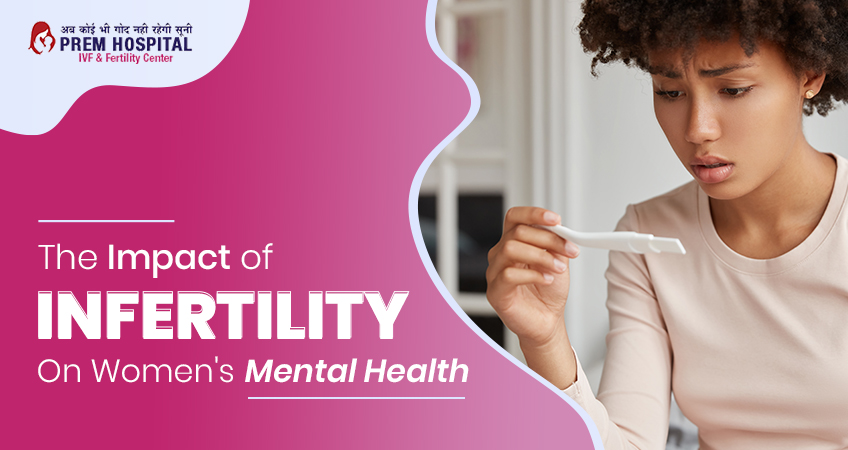As defined by WHO, Infertility is when a woman cannot reach clinical pregnancy even after 12 months of consistent unprotected sexual intercourse. Infertility is a global concern these days.
Why People Want Babies Even When There Bodies Don’t Support?
Individuals brought up in a supportive home setting, and a healthy family tends to build a similar life for themselves and their spouse. They want to build a stable, caring family where they will be gentle and loving towards their kids. They have prioritized starting their own families, as their parents did before them.
There are many families out there who wish to pass on the family legacy and traditions. This is more popular for the father’s family surname, but the argument is that many potential parents choose to pass on the family legacy. They take pride in ensuring that their kid will carry on the family legacy. However, Female Infertility in Meerut and other places have affected their desires.
Some people are repulsed at the possibility of being with babies and toddlers, while others are enthralled with the possibility of parenting a baby from infancy to adulthood. These individuals may wish to revisit the silly and pleasant parts of their life with their kids.
The fundamental truth of genetics is that we’ve been engrained to reproduce and transfer our genes to future generations. Many individuals are pushed to have and rear children due to biological imperatives and drives.
Importance of Fertility
Infertility Specialist in Meerut believes that procreation and legacy continuity are some of the most fundamental and essential impulses of all living creatures. Infertility is an emotional and situational problem for all women that are typically mentally dangerous, socially exhausting, financially frustrating, and clinically uncomfortable much of the time because of diagnostic-curative procedures performed.
Fertility is an essential aspect of adult life. If this need is not fulfilled, it has a negative effect generally on the women. Their career ambitions, personality, self-respect, marital life, and intimate behavior go downhill, and they ponder on the thought of loneliness. It is also likely that such women would lose their physical and sexual freedom.
The Affect of Infertility
While not a life-threatening condition, infertility is more of a social issue that affects the woman, family, and community. Infertility is a debilitating and severe health issue because it causes intimate, marital, and social issues. Numerous studies have shown that infertility has physical, behavioral, ethical, societal, mental, and financial consequences. Anger, depression, exhaustion, economic difficulties, guilt feelings, paranoia, lack of social standing, hopelessness, and social marking are common issues that an infertile woman faces. Nonetheless, a significant percentage of infertile spouses or people chose to conceal their infertility and avoid discussing fertility issues and treatments. With time, they become socially isolated.
Impact Of Infertility On Women
The most desirable and critical aspect of family identity is childbearing. Fertility Centre in Meerut underst ands this aspect of life, so it strives to achieve stability for a lot of families. It is detrimental to note that raising a child is regarded as a sign of marriage happiness and family stability. The behaviors associated with the idea of infertility are rife in our society. Childbearing is a physically stimulating and necessary aspect of a woman’s existence.
However, the feeling of not parenting a baby or being unable to produce a child leads to an increase in individual discontent, marital problems leading to divorce, and second marriage. In our society, where women are commonly blamed for a couple’s failure to reproduce, women’s risk of developing mental illnesses rises. Other causes that contribute to these mental disorders include socioeconomic and cultural pressures and societal expectations.
While the female’s working condition and education level are seen as determining factors, society and families typically interfere, for example, with the husband’s kin, their suspicious behavior, as well as the behavior of your spouse. These are the crucial players of mental disorders of infertile women. Due to society’s negativity, infertile women face violence, stigma, and family dysfunction. Infertility may directly affect women’s social standing and, most significantly, their mental health.
Infertility Treatment: A Step Forward
Coping with the conflicting emotions of medical care, confusion over results, and the difficulty of making critical choices are among the most challenging facets of infertility treatment. Infertility may be one of the most painful life issues that a person faces together. Long-term failure to produce a child can cause severe feelings of loss, frustration, remorse, and embarrassment. Coping with such difficult medical choices and the confusion that infertility entails will cause psychological turmoil in most people. It is beneficial to understand about Female Infertility Meerut, how to look for yourself, and ensure that you get the necessary assistance. At this stage, you must control your thoughts to keep your self-esteem and perspective on life as optimistic as achievable.
Bottom Line
If you feel stressed, frustrated, out of reach, or lonely, you should get help from a qualified counselor or psychiatrist, in addition to getting assistance from the doctor. Infertility may have a terrible impact on your mental health. Struggling to deal with infertility is a long and incremental process. It is important to note that you aren’t alone.

